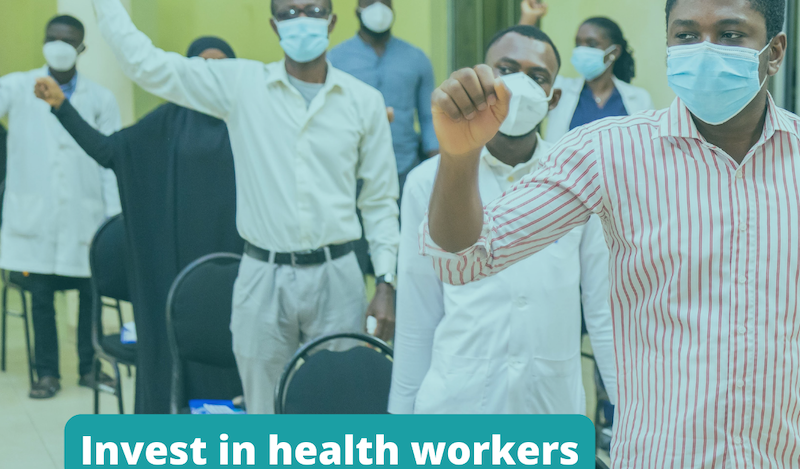The COVID-19 pandemic has demonstrated the critical role played by health workers in combating infectious diseases. It is a testament to the sacrifices made by the millions of health workers worldwide who put their lives at risk to contain the spread of the virus. However, despite their crucial contribution, health workers, especially those who work in resource-poor settings in Nigeria are often undervalued, underpaid, and overstretched.
This year’s World Health Worker Week focused on investing in health workers as an essential step toward achieving global health goals. It was not only about increasing the number of health workers but also about improving their working conditions, expanding their skills, and recognizing their value. In this article, we delve into the reasons why investing in health workers is crucial for global health.

Leads to better health outcomes
Health workers are the first point of contact between the healthcare system and patients. Strengthening the capacity of health workers saves lives and promotes equitable access to healthcare services. Additionally, investing in health workers helps to reduce maternal and child mortality rates, prevents the spread of infectious diseases, and tackles non-communicable diseases.
Supports broader societal impact
Health workers play a significant role in supporting communities during times of crisis. They are often at the forefront of disaster response efforts, providing much-needed medical care and relief to affected populations. Investing in health workers generates a ripple effect that benefits the economy while also increasing productivity and financial gain.

Creates a sustainable health system
Investing in health workers helps to build a skilled workforce, promotes retention of health workers, and fosters innovation. Health workers need training and professional development opportunities, access to appropriate tools, and adequate compensation. These factors motivate health workers to remain in their countries and continue serving their communities, reducing brain drain and health-worker attrition.
Strengthens resilience against global health threats
Infectious diseases do not respect borders, and investments in one country’s health workforce indirectly benefit the world. According to the World Health Organization (WHO), there is a global health worker shortage of 18 million workers. Supporting health workers is a long-term investment that contributes to global health security. By equipping the health workforce in all countries of the world, but most especially in vulnerable communities, we work towards strong health systems that can manage public health emergencies from the grassroots to the global level.
It is a moral imperative
Health workers work tirelessly to provide care, often under challenging circumstances. As such, they deserve to be recognized and valued for their efforts. Investing in health workers ensures that they are equipped with the necessary resources to carry out their duties effectively and safely.

One essential strategy for achieving global health goals is a well-equipped public health workforce. Investing in health workers is not only a moral obligation but also a smart investment that creates sustainable and resilient health systems. Global health investments must prioritize the capacity building and support of health workers to attain better health outcomes and improve social and economic development.




